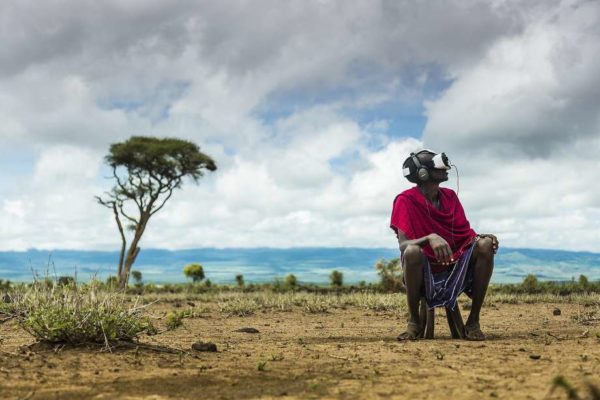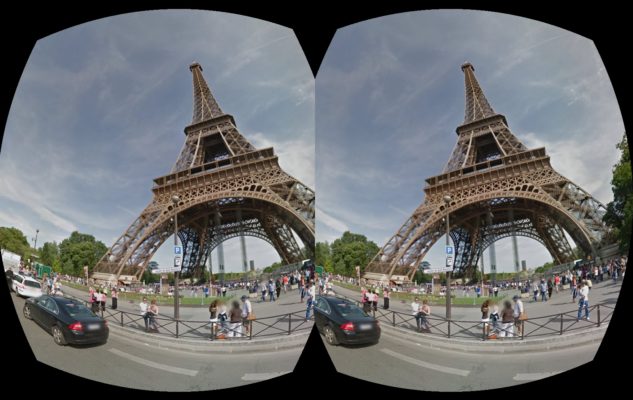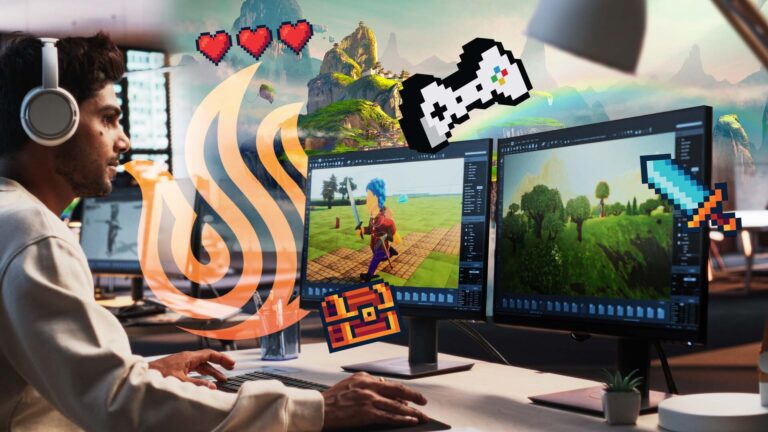Virtual reality has fascinated the imagination for decades, beginning when science fiction movies got audiences talking and companies imagining the possibilities. But, we don’t have to imagine anymore — virtual reality is no longer a nascent technology. It’s already being used in revolutionary ways across various industries, giving both students and industry professionals reason to train and develop their skills in this rapidly growing field.

Film and Gaming Become Virtual Reality
Video gaming, television and filmmaking as industries are being transformed by virtual reality, especially in a year that has seen the release of the Oculus Rift and HTC Vive, and the upcoming release of Sony’s PlayStation VR system. The possibilities are endless for gaming adventures — from swinging through treetops to exploring fantasy realms. The so-called “fourth wall” of a screen that separates a viewer from the action is removed in a virtual space, immersing the user/viewer in the midst of it.
In terms of filmmaking, this technology is starting to find a place in movie trailers. For example, last year the heavily anticipated “Star Wars” sequel released a 360-degree view trailer that is accessible through Google Cardboard.
Film festivals are also taking notice, adding VR content to their offerings — first at the Sundance and Tribeca Film Festivals, and now in USV’s own backyard. Next year, the Cinequest Film Festival will be referred to as the Cinequest Film & VR Festival, and more than a dozen virtual reality offerings have already been submitted.
Immersive Education
With the use of virtual reality, the classroom has the ability to melt away geographical, historical and even interstellar borders. Even from a theoretical perspective, the ability to take a class field trip to space or to landmarks like the Taj Mahal sounds incredibly exciting. But it’s not theory — it’s now reality. A London school is now taking students on trips to places such as Buckingham Palace without ever leaving the classroom.

Virtual Travel
This “travel without leaving the room” idea applies to tourism as well. Although many world travelers probably prefer to see the world’s landmarks in person, virtual reality opens the door for those who are physically or financially unable to make the journey.
The flight and hotel industries are already acting. Marriot Hotels is now offering virtual reality tours of not only its hotels, but of popular destinations like Hawaii beaches, providing guests with the opportunity to check out a destination and lodging before booking a stay.
Qantas Airlines is also experimenting with virtual reality by providing flyers with in-flight virtual tours of their destinations prior to arrival.
Virtual Reality Meets Medicine
Virtual reality has been used in the clinical space for the treatment of post-traumatic stress disorder for some time now. One example being that it allows combat veterans and those with psychological conditions to confront and gradually decrease symptoms in a secluded and safe virtual space. This environment matches the environments that generally trigger reactions, and the patients are then guided through it step-by-step. This use of virtual reality to “calm” users is finding a home in meditation as well.
Earlier this year, doctors were able to use the Google Cardboard virtual reality device to save the life of an infant who was born with one lung and half of her heart. They were able to put images of the child’s heart into a 3D viewing app on the VR headset, allowing doctors to explore the inner structure of her heart and diagnose a solution for the rare condition.
Browse Real Estate Virtually
Real estate listings generally offer photos and sometimes short videos of homes available for sale or rent, but virtual reality is taking home buying to the next level. A prospective buyer can now tour a listing from down the street or hundreds of miles away. In Ireland, Sherry FitzGerald New Homes is using Samsung Gear VR headsets to launch the country’s first VR platform for viewing properties, enabling potential buyers to do virtual walkthroughs of not just current homes, but even of unbuilt properties.

Experience Journalism and Live Events through Virtual Reality
Traditional media outlets are also finding ways to jump on the virtual reality bandwagon. Last year, The New York Times partnered with Google Cardboard to introduce an immersive VR documentary film, bundling the small VR devices into more than 1 million subscribers’ Sunday paper.
CNN sent a live stream of the Democratic debates to those equipped with Samsung Gear VR headsets. The potentials of a virtual space expand the possibilities of live video — not only can it bring events like sports games, concerts and political debates to millions of people, but it can also put them right in the action.
The Future of VR
Virtual reality is undoubtedly changing the way industries are operating, and the opportunities and possibilities are only just being discovered. It might be an overstatement to say that it is taking over every real-life experience, but it’s definitely going to shake things up a bit.


